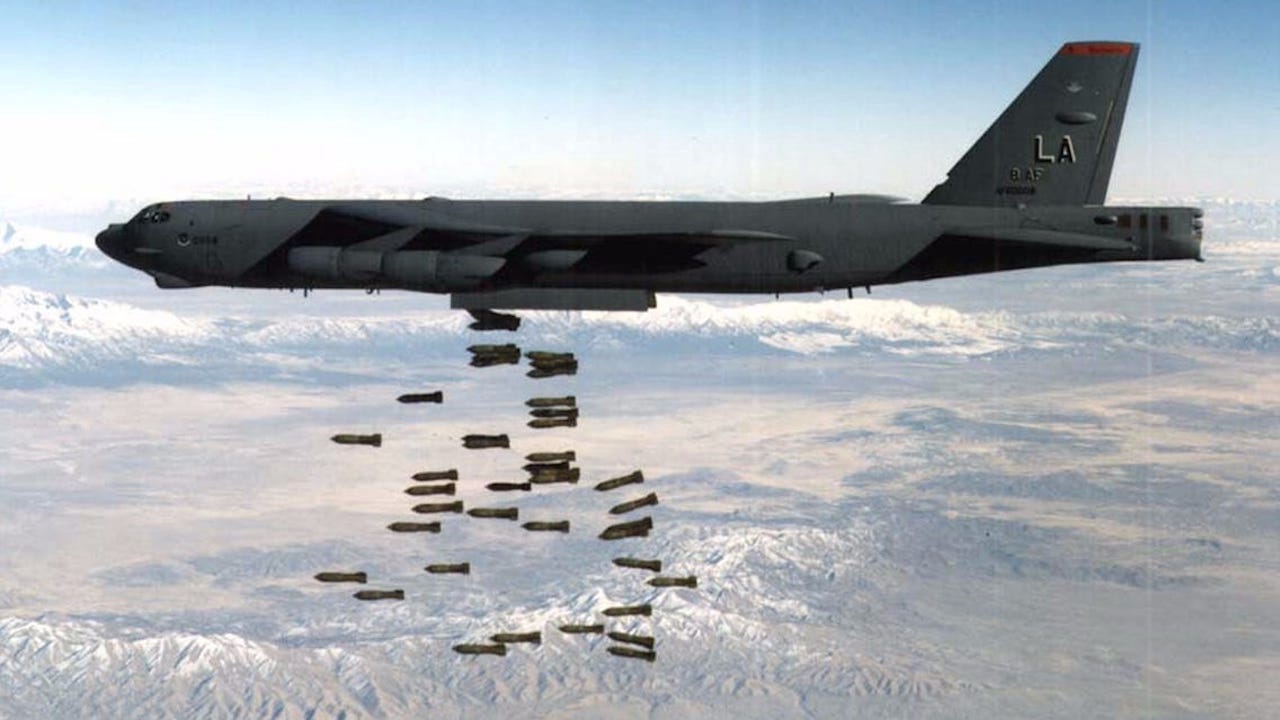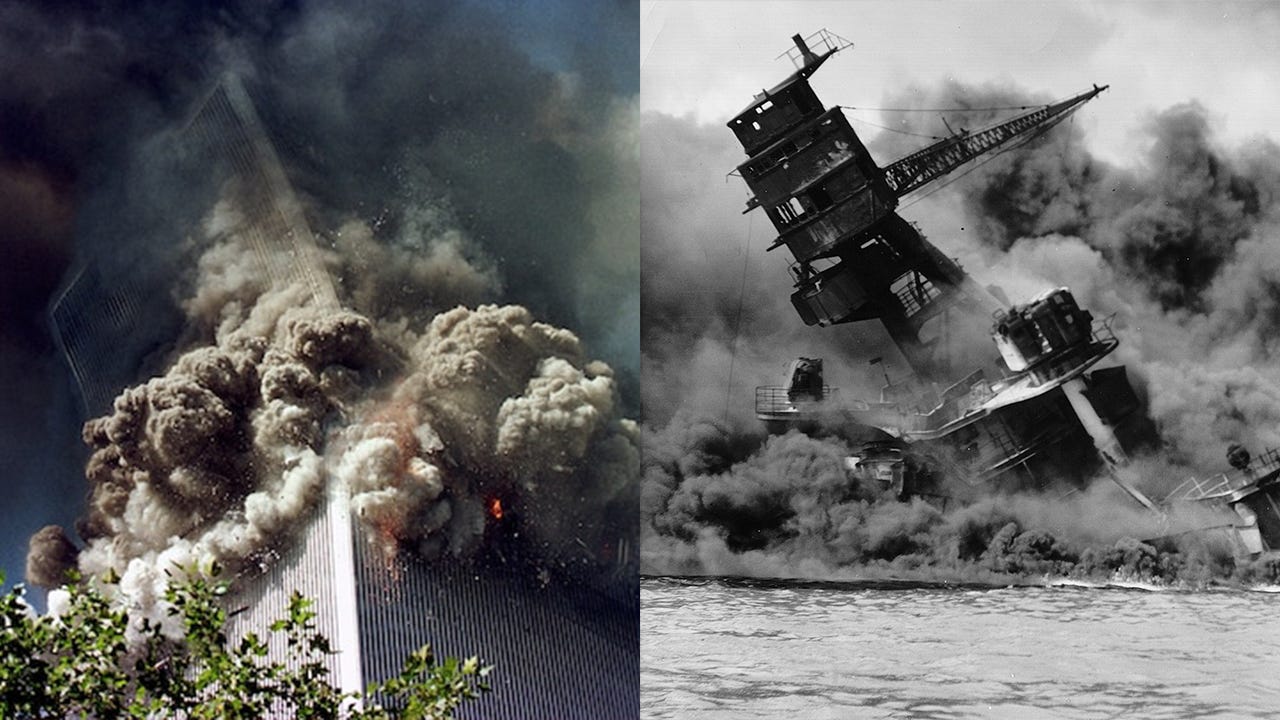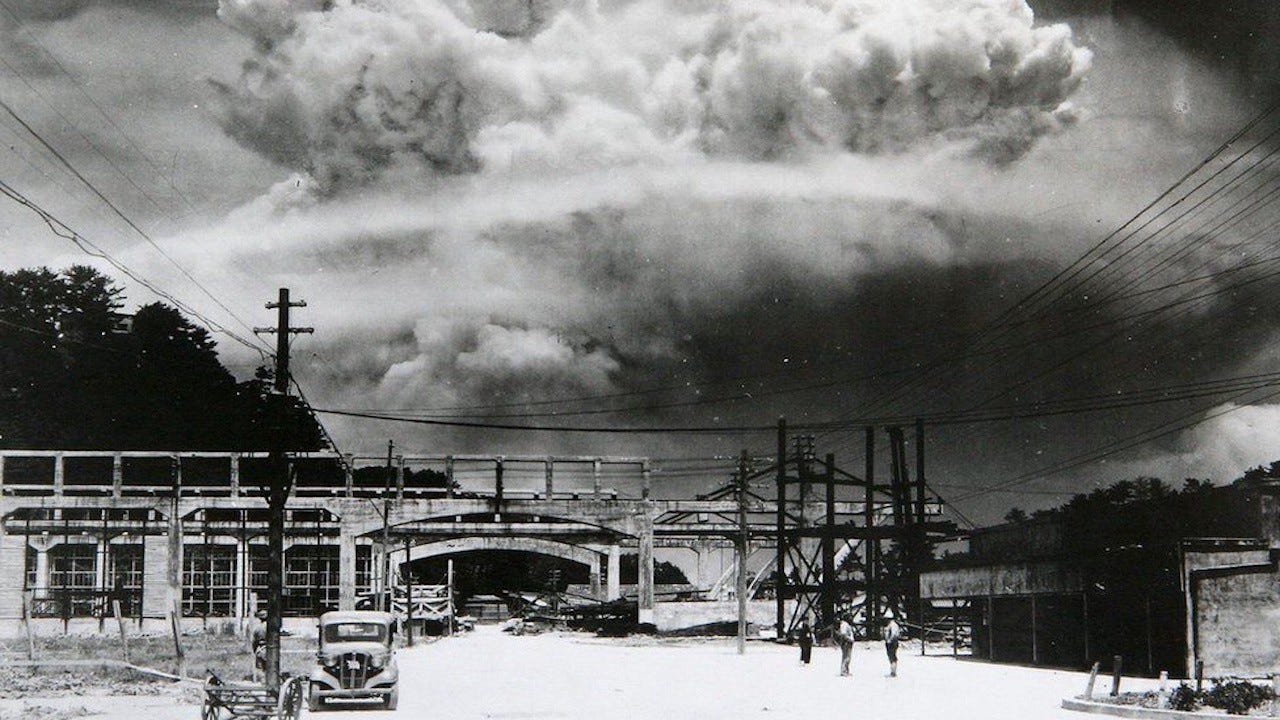Afghan vs. Japan: How to Nation-Build Like a Shogun
On September 20th, 2001, President Bush demanded the Taliban government to “close the terrorist training camps and hand over leaders of the al-Qaida network.”
A few weeks later, President Bush updated the nation, “None of these demands were met. And now, the Taliban will pay a price.”
Bush then specified how he’d make them pay,
On my orders, the United States military has begun strikes against al-Qaida terrorist training camps and military installations of the Taliban regime in Afghanistan.
These carefully targeted actions are designed to disrupt the use of Afghanistan as a terrorist base of operations and to attack the military capability of the Taliban regime.
He went on to say that with “the collective will of the world” we will “bring [al-Qaeda] to justice.”
Over time though the purpose of this “conflict,” as it was sold to the American people, morphed into regime-change and then democracy-building.
By December 17th, 2001, the Taliban had been removed from power, but most of al-Qaeda and the Taliban had retreated into the mountains and Pakistan so it was argued that to keep them out of power was to build Afghanistan into a democracy.
The United States is committed to helping build a stable and democratic Afghanistan that is free from terror and no longer harbors threats to our security. — Colin Powell, The President’s Budget Request for 2005
The survival of liberty in our land increasingly depends on the success of liberty in other lands. The best hope for peace in our world is the expansion of freedom in all the world. America’s vital interests and our deepest beliefs are now one. — George W. Bush, Second Inaugural Address
It was a noble goal.
The Bush administration could’ve easily propped up a competent enough pro-American dictator to keep out our enemies as the U.S. government had done numerous times in the past. It would’ve cost us much less money and lives, but the Bush administration felt a moral responsibility to leave the country better than how we found it and argued that democracy was our best long-term defense against terrorism.
After all, in the aftermath of 9/11, the war was initiated as a sort of quasi moral crusade. If we propped up a dictator then it would’ve trivialized the tragedy and provided additional fodder to the terrorist argument that the west is evil.
By turning Afghanistan and then Iraq into thriving secular democracies and then defeating the “Axis of Evil,” 9/11 would’ve been even more impactful and meaningful. Fire turned to freedom.
Despite conspiracy theories about oil, any reading of George W. Bush’s life shows that for better or worse he was heavily driven by moral meaning. After all, the born-again Christian campaigned as a “compassionate conservative.”
But the Bush administration vastly underestimated the difficulty of democratizing the region and, I’d argue, wasn’t willing to pay the price to succeed.
I believe the U.S. government could’ve succeeded if we responded to the deadliest terrorist attack in American history similar to how we responded to the deadliest military attack in American history.
Nuked em!
Just kidding. But if we are going to nation-build in Afghanistan then we should’ve done it similar to have we did it in Japan.
First, it begins with an official acknowledgment of our main objectives.
On September 6th, 1945, US President Truman approved a document titled “US Initial Post-Surrender Policy for Japan,” which set the two main objectives for the occupation: eliminating Japan’s war potential and “turning Japan into a democratic nation with a pro-United Nations orientation.”
And then it’s about appointing a competent quasi-absolute ruler over the country.
President Truman appointed General Douglas MacArthur as Supreme Commander for the Allied Powers (SCAP) who served as the interim leader of Japan from 1945 until 1948, aka “America’s Emperor of Japan” or as the Japanese would later honor him, “The Last Shogun.”
American biographer William Manchester argued that without MacArthur’s leadership, Japan wouldn’t have been able to make the move from an imperial, totalitarian state, to a democracy.
And then it’s about winning the “hearts and minds.”
Hearts
SCAP’s first priority was to set up a food distribution network because, following the wholesale destruction of most major cities, most of the population was starving.
SCAP imposed a major land reform where the government purchased from landowners 4,700,000 acres. By 1950, 89% of all agricultural land was owner-operated and only 11% was tenet-operated.
Minds
SCAP controversially preserved the God-Emperor but reduced his status. At SCAP’s insistence, Hirohito publicly renounced his divinity,
The ties between Us and Our people have always stood upon mutual trust and affection. They do not depend upon mere legends and myths. They are not predicated on the false conception that the Emperor is divine, and that the Japanese people are superior to other races and fated to rule the world.
SCAP also took a controversial photo with the emperor who at that point had rarely been photographed and if so only in the most positive light. To the Japanese, the God-Emperor should always be the most prominent person in a picture. SCAP forced Japanese publications to publish the photo to symbolize his equality/superiority to the emperor.
SCAP issued the Shinto Directive, which abolished Shinto as a state religion and prohibited some of its more “militaristic” teachings and practices. State Shintoism was seen by the Allies as a major contributor to WW2.
SCAP drafted a new constitution, which renounced war, stripped the emperor of military authority, implemented a parliamentary system, enfranchised women, guaranteed fundamental human rights, outlawed racial discrimination, abolished nobility, and disarmed the army. The Japanese have loved it so much that it’s now the oldest unamended constitution in the world.
SCAP abolished virtually all forms of censorship and controls on free speech, except SCAP outlawed any information, “inimical to the objectives of the Occupation.”
SCAP had American experts like the founder of the ACLU teach Japanese leaders about civil rights and civil liberties.
SCAP changed the education system to be more similar to the US system with mandatory three-year junior high schools and optional high schools. The Imperial Rescript on Education was repealed, which is where students had to memorize a 315 character document [tweet exceeded] that ordered, “should an emergency arise, offer yourselves courageously to the State; and thus guard and maintain the prosperity of Our Imperial Throne.” The Imperial University system was also reorganized and their writing system was drastically changed to better reflect the spoken language.
In order to stabilize their war-torn economy ASAP, SCAP imposed draconian contractionary monetary policies that caused much hardship for the Japanese but succeeded in getting rampant inflation under control. They also fixed the exchange rate at a favorable rate that would help boost Japanese exports in the years to come.
In 1950, there was a “Red Purge.” With the encouragement of SCAP, the Japanese government fired tens of thousands of communists, alleged communists, and other leftists from public and private jobs. This significantly weakened left-wing forces therefore leading to decades of conservative rule.
Once the Occupation officially ended in 1952, 260,000 American soldiers remained stationed there. Today that number still sits at 31,000.
Ladies and gentlemen, that’s how you nation-build!
With a shogun at the helm, America was able to reshape much of Japan’s political, educational, and economic systems in what would lead to one of the greatest economic resurgences in human history, aka the “Japanese economic miracle,” to the point where even the US media was concerned Japan could surpass the U.S. economy by the year 2000!
By any stretch of the imagination, nation-building was a MASSIVE success in Japan for the Japanese, Americans, and humanity as a whole.
Can you therefore see the appeal of making Afghanistan into Japanistan?
But Bush failed for two main reasons…
#1 is he never officially made nation-building our objective in Afghanistan as Truman had done. Our objectives in Afghanistan were constantly evolving based on facts on the ground and political realities at home. There was a dishonesty at the heart of the “conflict” that continued until the very day we left. Such dishonesty leads to wishful muddled thinking.
And the second reason, I’d argue, is nation-building was too imperialistic for Bush’s idealism.
President Bush wanted to be a moral crusader without the dirty work of forcing his morals into Afghani minds. It was easier for him to believe that if we just “take out the bad guys” then the population would naturally embrace democracy.
After all, who doesn’t want political freedom and a say in their political leadership?
Turns out: many Afghanis.
Guns can stop minds, but they don’t change them. Afghani culture was too authoritarian for democracy.
To change their minds would’ve required putting in charge a MacArthur-like leader who would’ve unapologetically imposed our western values. Their religion, traditions, and civil rights be damned! When a national culture is responsible for thousands of American deaths then it forfeits its right to exist.
It’s also much easier to reshape a population today because of advancements in technology.
We could’ve blanketed the country in wifi to spread American values, given every Afghani a phone with trackers in them, offered microfinancing whereby for each exam an Afghani passes in reading, math, and social studies they’d get a bit of money. We could’ve redistributed the land and provided extremely cheap (initially it’d be free) healthcare and food. We could’ve incentivized consumerist corporations to open up there like McDonald’s, AMC Theatres, and MLB baseball.
Afghanistan’s main exports are carpets and rugs (45% of total exports), dried fruits (31%), and medicinal plants (12%) so the U.S. could’ve trained more Afghanis in these areas and then imported more of their goods by advertising to Americans, “Buy an Afghani Rug to Support Freedom!”
And finally, the U.S. should’ve redefined Islam in Afghanistan as we did with Shintoism in Japan. At the very least we should’ve removed it as a state religion. And then perhaps banned certain teachings and practices such as burqas and polygamy. On Day 1, we should’ve abolished ALL restrictions on women whether they liked it or not! Despite popular opinion, imperialism can be a good thing. Not all cultures are created equal. The fact that Afghanistan is still ranked the worst place in the world to be a woman is a complete failure of the American government to impose our values.
In addition, we should’ve forced Afghani Imams (aka Afghani influencers) to embrace concepts such as civil liberties, republicanism, democracy, constitutionalism, and secularism by promoting those who do and firing those who don’t.
But because the Bush administration lacked clarity and resolve we got the worst of both worlds: we neither kept out the Taliban nor created a democracy. We neither won the hearts nor the minefields.
By the time Obama, Trump, and Biden came into office the opportunity to nation-build had long passed. The American people elected each of them, in part, to get out, and after spending the equivalent of about $10K per US citizen, Biden said enough is enough and finally did just that in the most sloppy Joe way.
(Taliban not only get to use Twitter to spread their influence (for which President Trump was banned for “inciting violence” even though there’s not a court in America who’d agree), but now they have billions of dollars of US military equipment.)
Much like how Bush squandered the moment so did Biden. We could’ve just kept a small number of troops in Afghanistan (like we have in Japan) to prevent a Taliban takeover and a safe haven for terrorists, but President Biden wanted to be able to say that he got the troops out by the 20th anniversary of 9/11!
Drop the confetti!
As a final warning, I’ll say that whether we like it or not: the world is a messy place.
As the US continues to retreat, our enemies will fill the void, which puts us in an ever more perilous position. Trying to take the easy way in life often ends up being the hard way. As our enemies gain new territory they’ll have more places to train and inflict pain on the United States from. It’s scary to think how WMDs will only become more powerful and accessible over time and how China will increasingly leverage its growing economy to pressure gov/org/com to bend the knee to its authoritarianism if they wish to continue to have access to their large market, i.e. NBA, Disney, WWE, Apple.
What has transpired in Afghanistan has hurt America’s military standing in the world and could therefore lead to greater global destabilization as our allies can no longer trust us as much and where our enemies may test the waters knowing that Biden will likely do little but drone on and on.
Nation-building may have made sense in 1945 Japan or 2005 Afghanistan, but with our federal gov. overextended and the middle class shrinking (the two go hand-in-hand), we now need to focus on rebuilding our own nation first so that we can once again be a nation worth replicating.
Before we can “make the world safe for democracy” we need to make the middle class great again.



















Another insightful commentary, thank you. Another possibility for nation building is for a leader to emerge internally and set the course. After the Turks chased out the British and Greeks, Gamel Mustafa, who became Ataturk, modernized and secularized Turkey in very spectacular fashion. Could such a leader emerge in Afghanistan? Will the Taliban produce a modernizer, as Turkey did? With the assassination of Massoud, did they lose their only hope? Ataturk was very fierce that Turks were NOT Arabs, who he saw as uneducated, lazy, backward thinking and under the thumb of theocracy. This is a message for today.